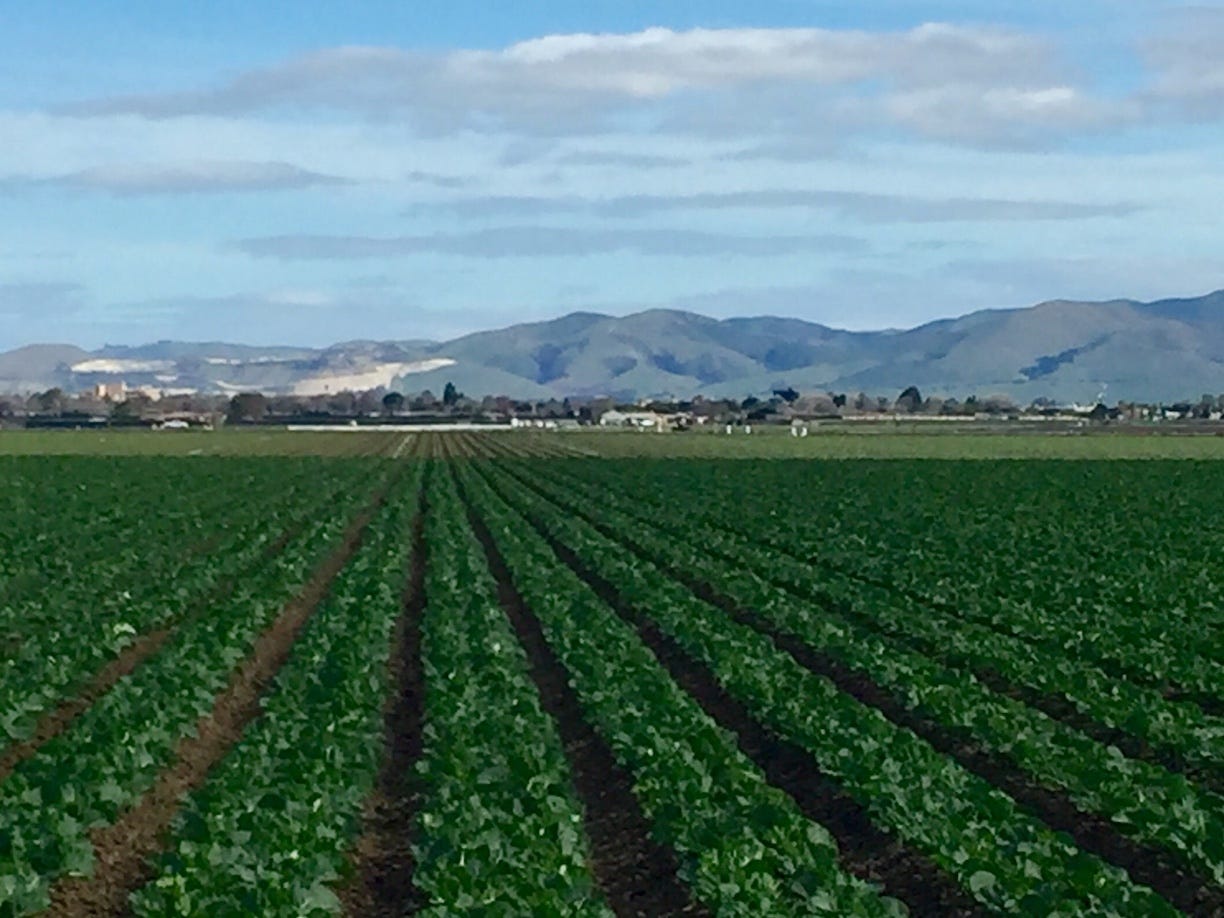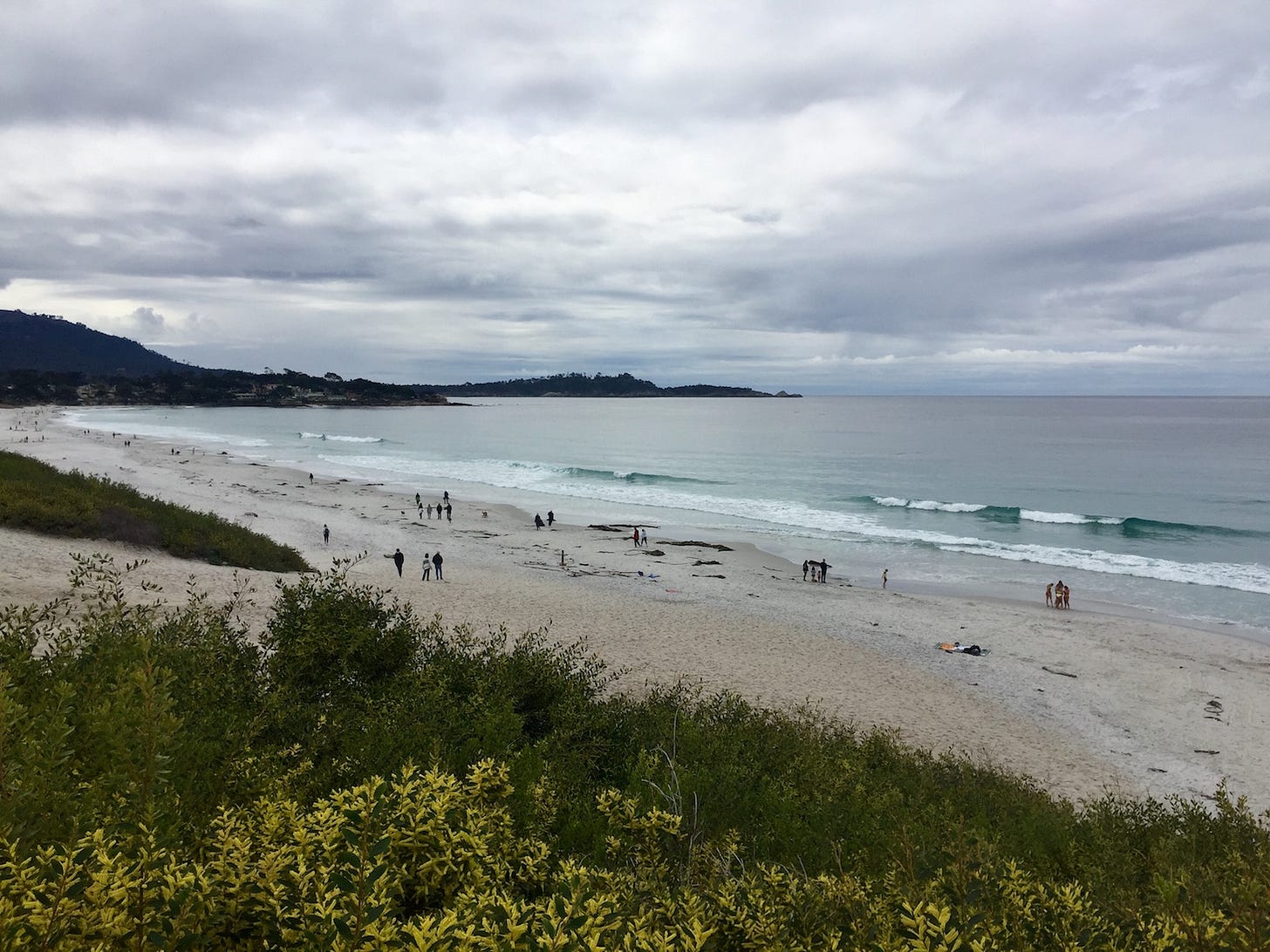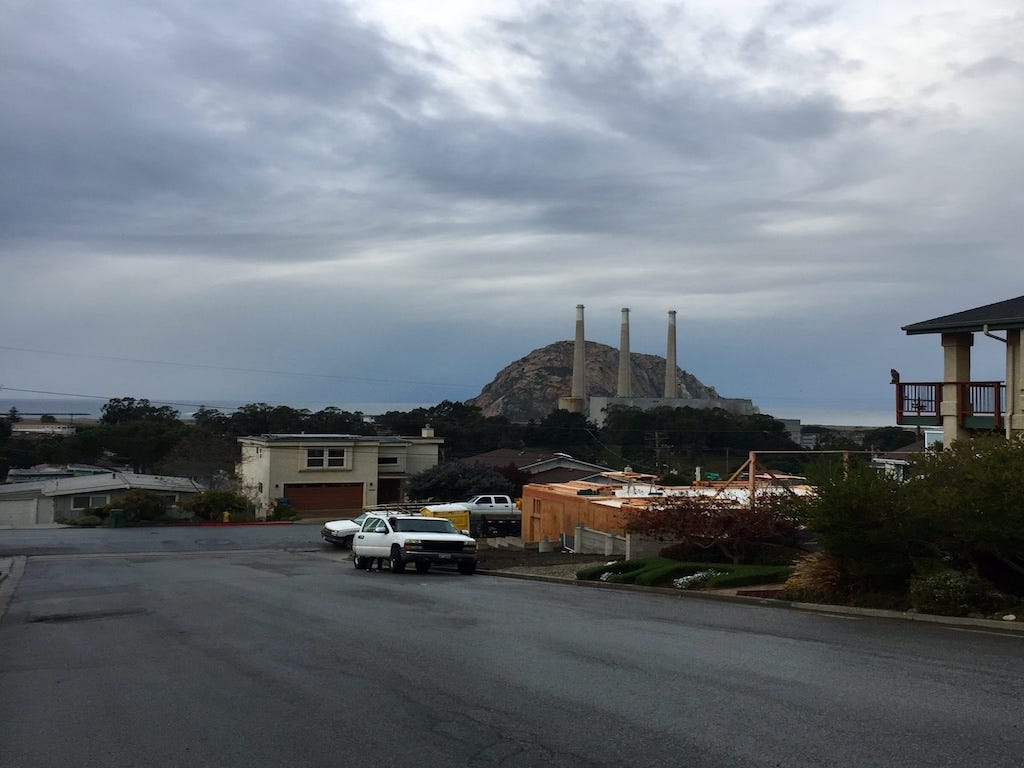In the Before
The last normal weekend
I hope you and your families are doing as well as can be expected during these difficult times. As the number of coronavirus cases grows, so does the likelihood of being personally affected.
This week I learned that my good friend Tom in Belfast, whom some of you will remember from my Tower Dispatches last fall, is dealing with the virus. Both of his in-laws have it and while neither is in the hospital (Tom’s father-in-law was briefly hospitalized) they are very much in our thoughts.
This week I was supposed to fly to Virginia to visit my mother. This is the second trip home I’ve had to cancel because of the coronavirus. She was already dealing with some pretty serious lung issues before all this and I’m worried about her.
I’m also worried about my brother who works in a hospital. And my cousin in New York whose husband is ill. And my 16-year-old daughter who is anxious about what all this means for her test scores and college applications.
There’s a lot to worry about. Nuvia and I have been dealing with the stress in different ways. I’ve been baking and Nuvia has been cleaning. So far I’ve made Irish soda bread, banana bread, and drop biscuits. Yesterday, Nuvia cleaned the screen on the fan above the stove.
The article in Wired does a great job of describing the bind we’re in. When humans perceive a threat our brains become more active so we can deal with it; but because we’re stuck in our homes, there’s less we can do with this energy. Hence all the baking and the cleaning. It certainly beats watching the news.
I’ve been thinking a lot about the last weekend before Nuvia and I began self-isolating. On Twitter, my old Bread Loaf colleague Celeste Ng prefaced a TV interview she did with the comment that it occurred “In the Before…” For a moment I felt like I was in a dystopian novel where a character reminisces about the way things were before everything went to shit. Framing it that way made those days seem more precious to me, so I want to spend some time with those memories before they disappear.
The last Saturday before we knew we were in the Before, Nuvia and I both had shifts at Golondrina. Golondrina is an art collective consisting of six close friends. We run a small shop in Barrio Logan, just up the street from Chicano Park, which is south of downtown San Diego.
We’re only open on weekends and Saturday is our busiest day. I sell my books, zines, prints, pins, and stickers. Nuvia sells paintings, card sets, hand-made cards, post cards, and clothing. Our cohorts in the collective make everything from jewelry to T-shirts. It’s a tiny shop, but it’s packed with stuff. I love being in the shop and watching people interact with our art. It’s nice when people buy things, but watching people pick up something and smile brings me a lot of joy.
I especially love it when friends come by to say hello. Annie and I were working at the shop when my friends Todd Taylor and Jen Federico came in with our mutual friend Toby. They were visiting San Diego for a show later that evening. More on that in a bit…
Then Nuvia’s sister Gissel, who was in town for a conference, came by. A few minutes later Nuvia arrived for her shift. Suddenly, the store was packed with people I love very much. It’s a happy memory, but impossible to describe without feeling anxiety. Our shop is very small. Social distancing is possible with one or two customers at the most.
We’ve had to close down Golondrina, but are still paying rent. Hopefully we’ll be able to re-open when this is over, whatever that means. It sucks paying rent on a space that’s sitting idle, but we’re not in a hurry to open our doors for the sake of opening our doors during an ongoing public health crisis with no end in sight.
A week ago I spent four hours trying to submit an application for a grant from San Diego’s Small Business Relief Fund, but so many people were applying, the city government’s site kept crashing. Nuvia and I are in the process of opening an online store, and hopefully I’ll have details about that soon.
Annie, Gissel, and I went out to dinner at a Mexican Cantina in South Park called Del Sur. It’s right around the corner from The Book Catapult and its wealth of vegan options have made it a recent favorite. Then Annie and I went back to Golondrina to bring Nuvia some dinner before heading home.
That night Nuvia and I met with Todd, Jen, and Toby at the Soda Bar for a show I’d been looking forward to for months. San Diego resident Paul Silver celebrated his birthday by throwing a party with the bands Hammerbombs, Tiltwheel, Toy Guitar, and Dillinger Four.
It was a festive night but a bittersweet memory. I loved Tiltwheel even before moving to San Diego and I saw them many, many times during my peak drinking years, and I had a great time talking to Davey after the show.
Dillinger Four is a band that means a great deal to a lot of people, myself included, but they’re kind of like the Replacements or Smogtown (another old favorite of mine). You have to catch them on the right night. Also, it didn’t help that the sound wasn’t very good (paradoxically, the sound quality on this video is pretty great).
The band’s most recent record, Civil War, came out over a decade ago and I listened to it incessantly while mourning the death of a friend. When I see Dillinger Four, my friend feels very close. Like Richard Hell says, you can’t put your arms around a memory, but music can bring memories to life.
Still, it was sad to see so many people my age so wasted. I’m a sentimental person who has been known to squeeze a tear from me eye when the right song hits the right mood, but this felt different. This was nostalgia for nostalgia’s sake. Low stakes party rock. These middle aged punkers did not look like they were living their best lives, but there but for the grace of Gumby go I, right?
Sunday afternoon I dropped Annie off at her mother’s house and drove up to Los Angeles, a drive I’ve made a million times, to spend the night at Todd and Jen’s house—aka Razorcake HQ. I was heading up to Carmel the following day and they generously put me up for the night to help break up the trip to Northern California.
We ate some delicious vegan food that Jen had prepared and talked about last night’s fun. I’ve known Todd since we went to grad school together at Northern Arizona University in the mid ‘90s. Our conversations are always variations on our early grad school gab sessions about books, music, movies, and our own writing projects. (I was working on a book proposal; Todd is researching and writing about Chavez Ravine.)
Todd and I used to set up on the kitchen table in the house we shared in Flagstaff, Arizona. He’d drag out his typewriter and I had a clunky old laptop, although maybe that’s a false memory. Did they have laptops in 1995? Could I have even afforded one? We used to pour a shot of Jim Beam from the handle we kept on top of the refrigerator and hammer away at our machines while listening to CDs.
After dinner, I retired to the guest room and worked on some edits to the book proposal that my agent had requested and sent them off before going to sleep.
In order to avoid rush hour traffic, I got up early and hit the road. I stopped at the gas station for the coffee and donut special (Extra Mile is the working man’s Starbucks) and off I went.
I know every twist and turn of the 100 miles between San Diego and Los Angeles, but driving north always feels like an adventure. It’s been a wet winter so the hills were lush and green. It was an overcast day and mist drifted through the valleys and clung to the fields.

I called my mom to talk about my visit. I was scheduled to fly out on a redeye in two days and I was apprehensive about catching something on the flight and then spending a week with her, but she was adamant about me coming.
I listened to the audio version of Our Band Could Be Your Life and made my way to Carmel to interview Marie Mutsuki Mockett. When my editor at the Los Angeles Times offered me the gig, I immediately accepted. I told my editor that I had met Marie at Bread Loaf in 2009 and that we had kept in touch over the years, but it wasn’t a conflict of interest. I had no idea, for instance, that Marie was from Carmel or that she had written a book about the American wheat harvest.
I was eager to write for the paper again. I had pitched and written a profile of an author under a very tight deadline that ended up getting killed. (In fact, I had something to do with the killing, but that’s a story for another day.) While both sides agreed it was the right thing to do, I have learned the hard way that some people will hold your willingness to stick to your principles against you when it means more work for them.
So when I was offered the opportunity to write another profile, I enthusiastically accepted, even though it meant driving 450 miles up the coast and back. It also helped that I knew Marie and think very highly of her and her work. Marie brings a novelist’s gift for narrative to her nonfiction that makes American Harvest an arresting and poignant story. If Marie could spend an entire summer with a crew of evangelicals while harvesting wheat from Texas to Idaho, I could make a quick trip up the California coast to report on it.

We met for an hour at her childhood home in Carmel, at which point the photographer, Peter DaSilva, arrived—the very same photographer who took the photos of Barry Gifford when I did a profile of him two years ago (although I didn’t realize that until, um, just this very moment).
During the photo shoot, I checked Twitter. It was March 11. The markets were roiling. Ivy league schools were cancelling classes. The NBA season had been suspended. A coronavirus conference was cancelled because of the coronavirus. I didn’t want to know anymore and went through my notes.
After Peter left, Marie and I continued our conversation. We reminisced about Bread Loaf and talked about our work and the lives we’d made for ourselves, lives that seemed unimaginable back in the summer of 2009 when she was pregnant and I was newly sober.
We went into town for a terrible turmeric latte and then I was off again so that I could make it to Morro Bay before dark, where my friends Sean Carswell and Felizon Vidad live.

Sean is on sabbatical from Cal State Channel Island and Felizon works at the California Men’s Colony northwest of San Luis Obispo. Sean co-founded Razorcake with Todd and published my short story collection Big Lonesome under Razorcake’s imprint Gorsky Press.
Sean and I share a love of crime fiction and had a lot to talk about now that I’m all caught up on Sara Gran’s Clair DeWitt mysteries. He just finished a book that’s part memoir, part exploration of the word “redneck” that he’s starting to send out, so it’s an exciting time for him.
In the morning, I plucked a copy of David Goodis’s Dark Passage from the bookshelf in the guest room, went out for breakfast, and chatted with Sean before heading home.
Even though it rained on and off throughout the day, there was very little traffic, even in Los Angeles, and I flowed through California like a dream. When I finished Our Band Could Be Your Life, I switched over to Sara Gran’s Come Closer, a first person tale of demonic possession that had me enthralled right up until I pulled into my driveway.
I went online and the news about the virus was worse than I had imagined. Disneyworld closed, Tom Hanks tested positive, and the death toll was surging in Italy. I got on the phone and spoke with my mother, who was now very concerned about my trip. We agreed to play it safe and postpone it.
We thought we are acting out of an abundance of caution. We thought we were playing it safe. Who knows when we will see each other again.

My profile of Marie was published last weekend and American Harvest came out on Tuesday.
